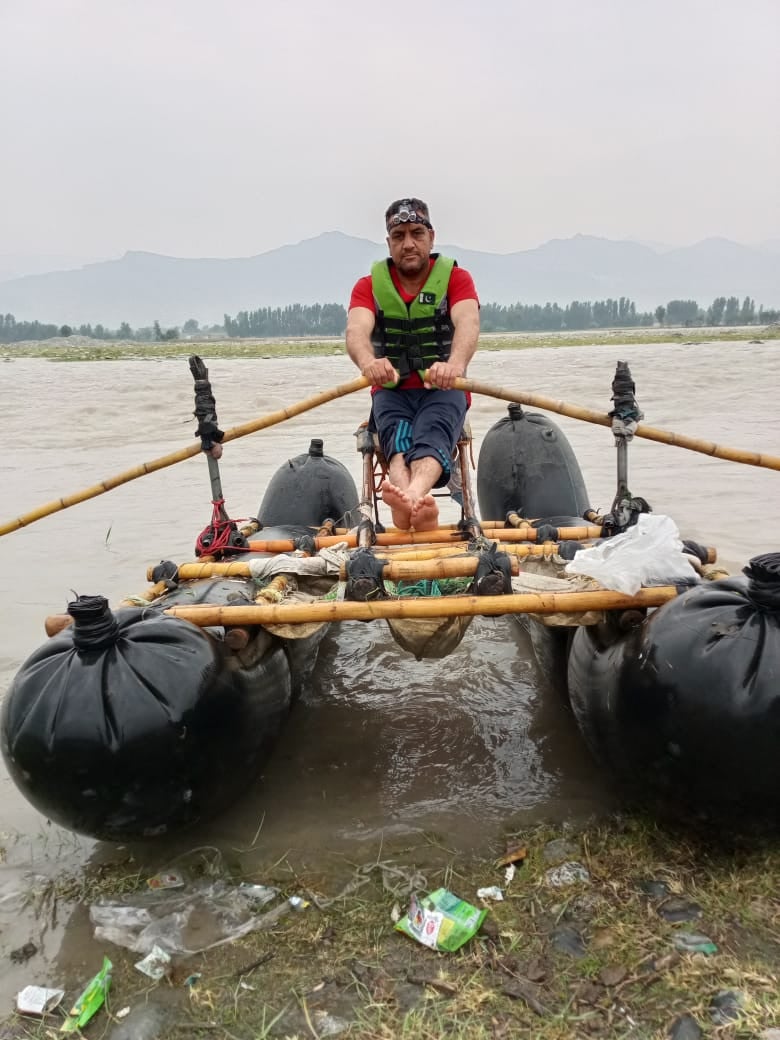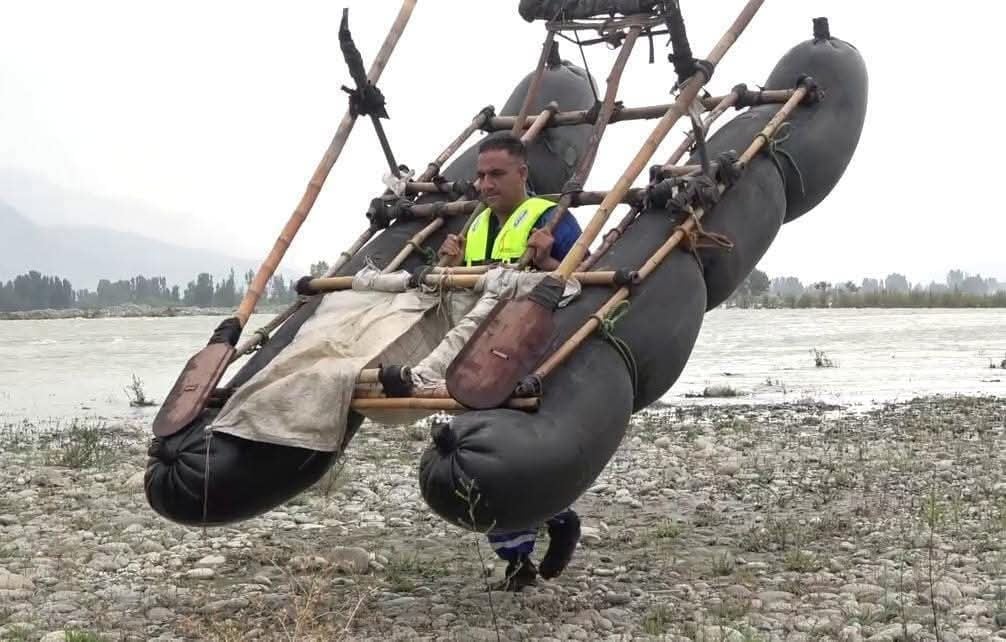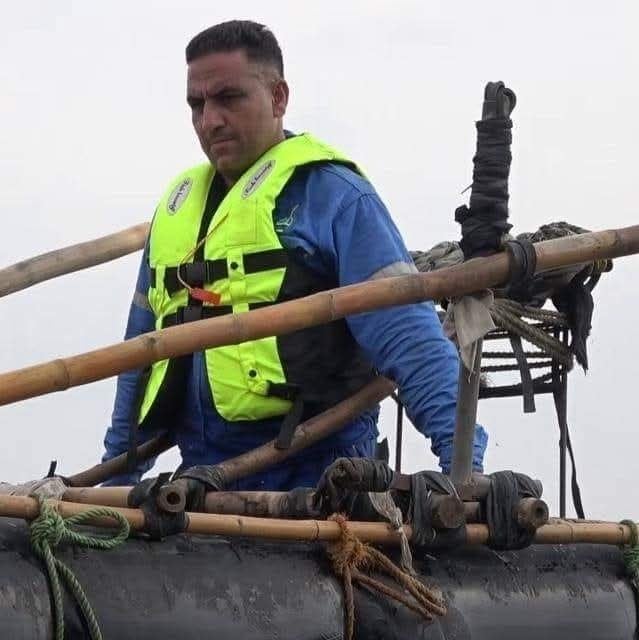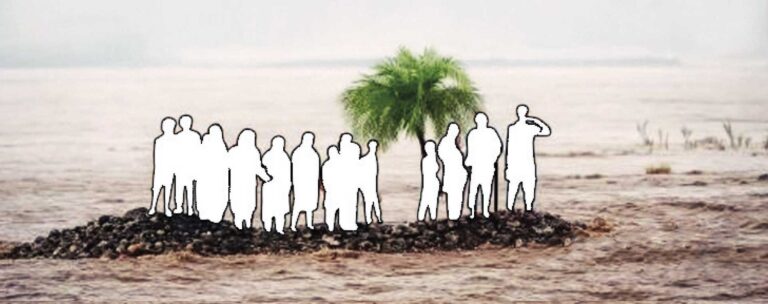PUBLISHED
July 06, 2025
SWAT:
On June 28, the summer sun rose over the Swat Valley to start a picture perfect day. A favourite retreat for holidaymakers from across the country fleeing the searing heat of urban centres, Swat was in peak tourist season. The valley’s winding roads were packed with vehicles carrying families in search of cool breezes, mountain views and memories.
Around 8am, two families arrived in Mingora’s Babozai area among the many other travellers. One family came from Mardan and the other had come from Sialkot. After a light breakfast at a roadside hotel, they made their way to a scenic spot along the River Swat. With the water flowing gently nearby, the children laughed, elders sipped tea, and everyone posed for photos, to capture moments of a memorable trip.
But danger was quietly building in the skies above.

A sudden flash flood
What began as a light drizzle soon turned into a torrential downpour. Unaware of any cloudburst warnings or weather alerts, the families continued enjoying their riverside break. As the water level began to rise, they moved to what seemed like higher ground — possibly more out of panic than strategy.
Eyewitnesses later noted that the water level at first wasn’t more than a foot deep — still shallow enough to walk through to safety. But then came the deluge. Within minutes, a surge in flow transformed the mild current into a raging torrent. The makeshift high ground was engulfed, and the families were swept away.
Only three people survived. Fourteen were lost in a matter of minutes.

Could it have been prevented?
The tragedy sparked nationwide grief and anger. Many questioned whether this was simply a natural disaster — or something that could have been avoided with better foresight and response.
Hazrat Ali Bacha, a senior journalist based in Swat, pointed to serious administrative lapses. “Babozai is not a designated tourist spot. These families were just stopping en route to Kalam,” he said. “They were trapped for nearly an hour. A trained, properly equipped rescue team could’ve saved them.”
Bacha also revealed a troubling infrastructure flaw. “The district government had recently built a jogging track along the river. To do that, a contractor temporarily diverted the water flow with a wall — which was never dismantled after the project ended. During the rain, that wall collapsed, redirecting the full force of the river toward where the tourists stood.”
He added that local rescue units, particularly Rescue 1122, were not only slow to act but inadequately prepared — claiming that many of its personnel were recruited based on political affiliation, not merit.
The real first responders
As the official response faltered, local heroes stepped in. Hilal, a well-known local fisherman and diver, had just returned from rescuing seven people elsewhere when someone informed him of the unfolding tragedy in Babozai.
“When I arrived, rescue diver Asmat was preparing his raft. We pulled it together and managed to save three people,” Hilal recalled. “Later, I found two bodies. I’m heartbroken I didn’t get there sooner.”
Hilal isn’t a volunteer by chance — rescue work runs in his family. His father served as a local lifeguard and fisherman for 35 years. Today, Hilal and his brothers carry on that legacy.
He was also critical of standard rescue gear. “Inflatable boats with rotors are useless in the Swat River — it’s too shallow and rocky. We still use the traditional ‘Jala’ (wooden raft), which works far better here.”
Hilal and Asmat were later invited to the Governor’s House and publicly praised for their bravery. However, behind the accolades is a troubling truth: those without uniforms are often the ones doing the most critical work.
 Rescue 1122 responds
Rescue 1122 responds
Facing public scrutiny, Director General Rescue 1122 Shah Fahad defended his department’s actions.
“Swat River on a normal day has a discharge of 3,000 to 4,000 cusecs. On that Friday, it surged to 77,000 cusecs in just 45 minutes. This was an extreme flash flood,” he explained.
Fahad acknowledged a key delay in the rescue response: the first emergency call received at 9:49 am mistakenly reported that tourists were trapped in a hotel. “We dispatched an ambulance. When it turned out to be a water emergency, only then did we send the appropriate team. That miscommunication cost us time.”
He refuted claims that Rescue 1122 was poorly equipped. “We have both inflatable boats and ‘Jala’ rafts, life jackets, and trained divers,” he said. “We’ve also collected CCTV footage and videos from locals to reconstruct what happened.”
Government action and public backlash
The tragedy triggered an immediate administrative response from the provincial government. Barrister Muhammad Ali Saif, Advisor to the Chief Minister on Information, confirmed that disciplinary actions had been taken.
“The Chief Minister suspended the Assistant Commissioners of Babozai and Khwazakhela, the Additional Deputy Commissioner (Relief), and the District Head of Rescue 1122,” Saif said. “A full inquiry has been launched by the Chief Minister’s Inspection Team.”
Saif also detailed new government initiatives in response: a complete ban on riverbed mining in Swat; a crackdown on encroachments including hotels built too close to the river; deployment of modern rescue tools such as drones and life jackets; establishment of a Unified Response Center in Swat; mobile patrol units along riverbanks throughout Malakand Division; and a reassessment of the Irrigation Department’s flood early warning system.
He added that over 75 stranded individuals were rescued from different parts of the valley in the hours following the flood and that financial compensation was being distributed to affected families.
“The Chief Minister personally visited the families to offer condolences,” Saif said. “While we cannot prevent natural disasters, we are committed to ensuring negligent officials are held accountable.”

A system on the edge
Despite reassurances, many locals believe these are reactive measures — too little, too late. Year after year, monsoon season exposes just how stretched and under-resourced the province’s emergency services really are.
In many areas, Rescue 1122 personnel are not trained for specific terrains like the rocky Swat River. Equipment is often unsuitable or outdated. In wildfire emergencies, responders have even been seen trying to douse flames using tree branches.
There’s also no consistent deployment of officers along rivers during flood seasons. Mobilising local volunteers like Hilal could bridge this gap — but doing so requires long-term planning, which critics say is still lacking.
“This isn’t just about one bad day. It’s about a system that hasn’t been built to withstand the realities of this region,” said Bacha.
Failed infrastructure
The floods also highlighted a long-running issue: the fragility of modern infrastructure. Across Swat and much of Khyber-Pakhtunkhwa, roads, bridges, and culverts routinely collapse under the strain of heavy rains. Tellingly, many of the bridges built during British colonial rule over a century ago remain standing, while newer ones built just 10–15 years ago crumble.
This isn’t just a matter of bad luck — it reflects questionable construction practices, lack of oversight, and compromised quality in public works. The consequences are deadly.
Every destroyed bridge or collapsed road during a flood isn’t just a logistical inconvenience — it’s a lifeline severed, often at the worst possible moment.
A tourist spot or death trap?
Swat Valley has long drawn travellers with its breathtaking beauty, rich history, and hospitality. But every disaster like this chips away at its reputation. When safety is not guaranteed, tourists will think twice — and the local economy, heavily reliant on tourism, will suffer.
Yet amid the heartbreak, there is also hope. The tragedy has sparked long-overdue conversations about rescue capacity, climate resilience, and infrastructure integrity. Whether those conversations translate into lasting reform remains to be seen.
A man-made crisis?
What happened in Babozai on June 28 was not just a freak act of nature. It was the result of cascading failures — ignored warnings, incomplete projects, and systemic neglect.
The water came quickly. But the gaps in the system were building for years.
As Swat begins to heal, one truth remains: if real reform doesn’t follow this tragedy, then the next one is only a monsoon away.
Riaz Ahmad is a freelance journalist and contributor
All facts and information are the sole responsibility of the author

